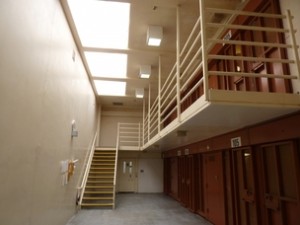Facing a federal lawsuit, state corrections officials are moving forward with a plan to transfer hundreds of alleged prison gang members from controversial isolation units to regular lockups around the state.

The first group of 45 inmates will be removed from the state’s Security Housing Units in the coming weeks, said Kelly Harrington, associate director of the California Department of Corrections and Rehabilitation. He said some of the inmates have spent more than 20 years locked in the special units.
“The priority has been to look at individuals who have been in the Security Housing Units the longest,” he said. “The goal is to reduce the number of inmates in the security housing units as safely as possible.”
As part of a new policy announced earlier this year, the inmates are not being required to renounce the gangs or snitch on other members, a practice known as “debriefing.” Instead, the prisoners must show they are no longer involved in gang-related activity as defined by new departmental guidelines.
Another 21 inmates will be placed in a “step-down” program that focuses on improving behavior and reintegrating inmates into the general prison population. Harrington said inmates could pass through the program within four years.